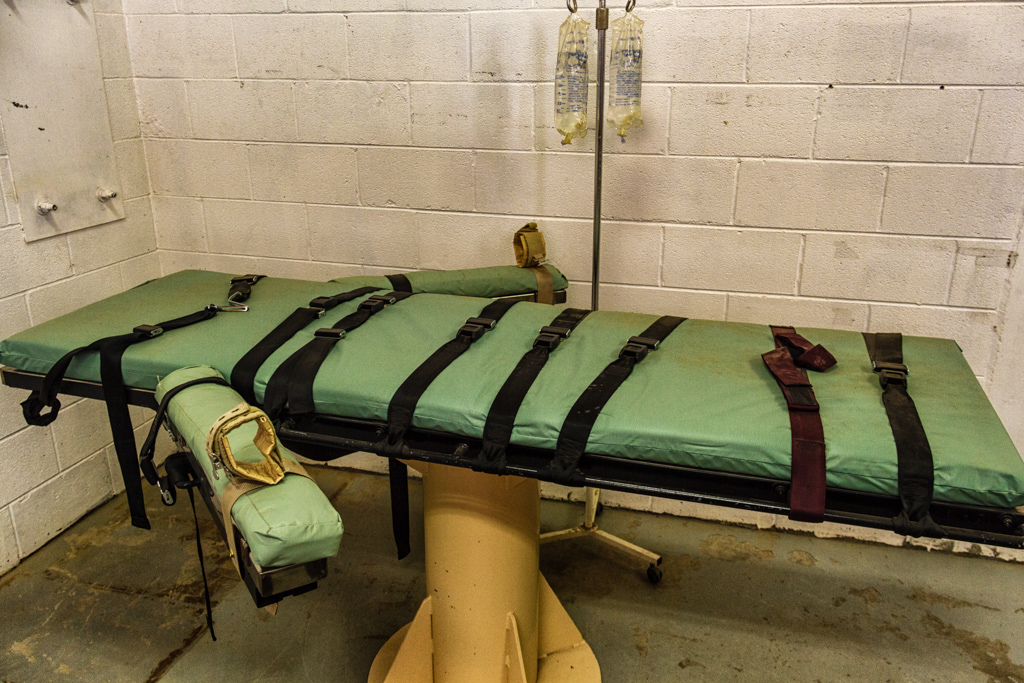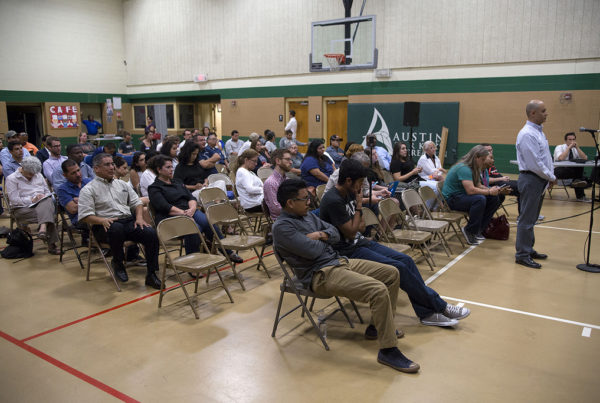For years, Texas has led the nation in the number of executions, but the state’s death chamber has been idle since April, and there have been several high-profile stays of execution. Could this be a sign of something broader going on when it comes to the death penalty in Texas?
Kathryn Kase, executive director of the Texas Defender Service in Houston, says nationwide, there’s been a huge drop in death sentences. Texas has had many fewer executions this year than in years past. In 1999, the state sent 30 people to death row.
“The rate of death sentencing is dropping dramatically in Texas,” she says. “Last year, Texas had only two new death sentences. This year we’ve had three.”
Kase says the reduction makes sense because the system allows for life without parole.
“[Life without parole] does keep people in prison for life. And if we’re wrong, if people are innocent, we can go back and get them,” she says, “whereas if they’re innocent and they’ve been executed, we really can’t resurrect them.”
If the availability of lethal injection drugs were a factor, Kase says stays of execution would reference that reason. Instead, we’re seeing stays for other reasons: because questions arose about whether the state convicted the right person, because experts gave false testimony, because forensic proof in the case – the science – was bad.
“We’re understanding that the evidence that used to convict and put people on death row was not infallible,” she says. “When you have doubt like that, the courts should properly put the brakes on things.”
Kase says the Texas Court of Criminal Appeals (CCA) is responding to the larger conversation nationwide about the viability of the death penalty. Two opinions from CCA judge Elsa Alcala have shown that she thinks the court needs an open discussion of the constitutionality of the death penalty.
“Practically any murder in the state of Texas could be capital murder,” she says, “and if the death penalty is supposed to be reserved for the worst of the worst, not every murder should qualify for the death penalty for that to be constitutional. She has also observed that the death penalty has been overused in the state of Texas against African-Americans relative to their representation in the population.”
Texas has led the nation in exonerations, Kase says, which could be a factor in why the state is rethinking the death penalty.
“Any state that can admit that it’s wrong, about putting the wrong people in prison,” she says, “I think can rethink the death penalty.”
Post by Hannah McBride.
















